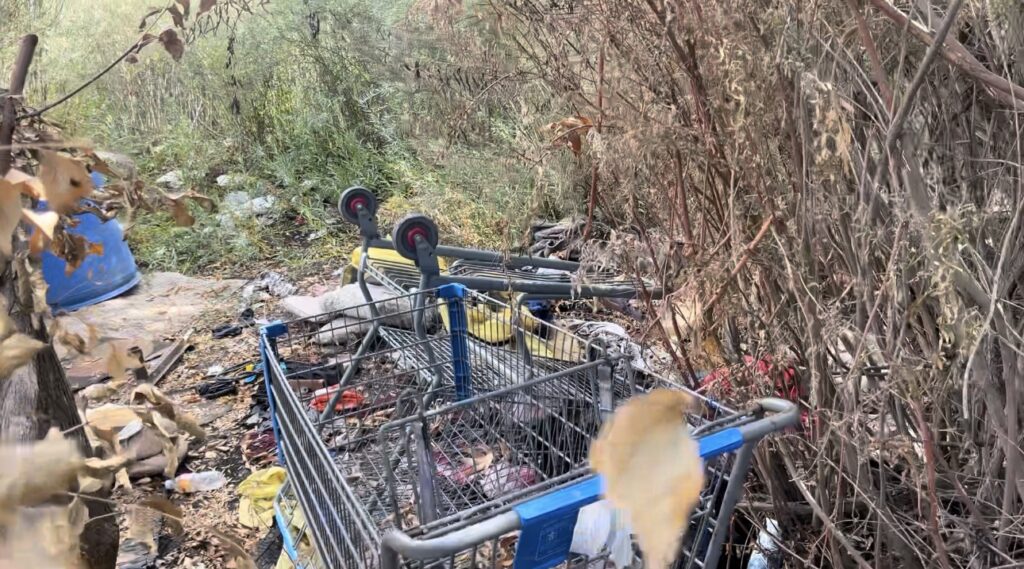by Paul Martin
There’s a woman who comes to Kéan almost daily. That’s the coffee house where I start nearly every day in town. I’m unsure if she’s technically homeless, but she has one of those carts that she parks outside the front door. She stays for hours.
Today, she mumbled sentences aloud while eating a bagel, sitting a few tables away. I’ve never seen her speaking to herself before. It was in English for a while, then another language. I couldn’t quite pick out which one. At some point, one of the regulars stopped and said hi to her. She barked back at him, “It’s no good morning. No good morning at all. I come here alone. I leave here alone. No good morning at all.” About ten minutes later, a couple approached to say hi to her. She barked back at them, too. I’ve sat in this place dozens of times, and usually, she’s remarkably cordial.
I sat, thinking about those words—the words about being alone. Coming alone and leaving alone. I thought about Mother Teresa. She said something about loneliness and how the hunger for being wanted is more challenging than the hunger for food.
When I was working at the shelter in New Mexico last year, I spent time with the clients—those who were using fentanyl, all who admitted to their addiction. I never felt nervous around them. Not once. I’d sit against the wall and ask about their families. Many asked about mine. Never once, never a single time, did I hear about a stable childhood. When you know the background of users—the abuse, neglect, abandonment, and developmental trauma—it’s easy to have compassion on them. Or it should be.
This man once got in the face of the Executive Director. He complained about the food and the beds and asked to see the financials to know where “all the money” was going. I was working as a consultant for the shelter, and every penny went to direct services; this was the only shelter in the city, the city ravaged by this new drug.
Fentanyl, like other opioids, brings a sense of calm.
In my thirties, my doctor prescribed codeine for my severe strep throat. I’ll never forget the relief it brought and the emotional calm. One mother recently told me that her son said it makes him feel like “an angel wraps him in her arms and hugs him.” Another word posted on our UAF Facebook page was “bliss.”
People forget that opioids are medicine—in hospitals, they are used today and have been for decades. A few weeks ago, a friend in my yoga class asked me how my work was going. I shared a bit, and then she told me that when her appendix ruptured, the pain was unbearable, even with morphine. “Then they gave me fentanyl; I’ve never felt so good.”
But when addicted to fentanyl, you use it to relieve the pain it creates. So you are getting high not so much to “feel good,” but to not feel like hell—because the high is much stronger and lasts half as long as heroin, the pain of withdrawals hits hard and fast.
And then there’s the loneliness.
Adjacent to the shelter parking lot is a vacant piece of property about the size of a football field. It’s densely covered with a tree or bush resembling bamboo. The users have burrowed their way in and created “rooms” to escape the heat in summer and the cold in winter. The rooms could have fire pits, shopping carts, blankets, stuffed animals, mattresses.

But I noticed something: there were these small paths off some of the rooms, just large enough for one person to crawl through.
To be alone, I later learned.
Fentanyl is not a party drug. Given its potency, peace, and comfort, you want to be alone and secluded. Many of the overdoses happen when the user is alone, often in bed—frequently experiencing the bliss of no pain. One of the clients, who is quite well-spoken, told me his use is “rooted in the bliss of no pain.”
The bliss of no pain.
I don’t think the lady in the coffee shop uses drugs. I’ve seen her dozens of times, and she doesn’t present any user characteristics. She’s always alert, engaged, and relatively happy.
As I walked out today, I thought of the users in New Mexico. I thought of their secluded places in those bushes. And the lady’s words rang in my ears.
I come here alone. And I leave here alone.